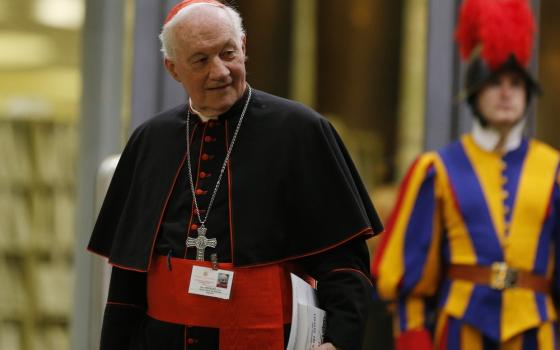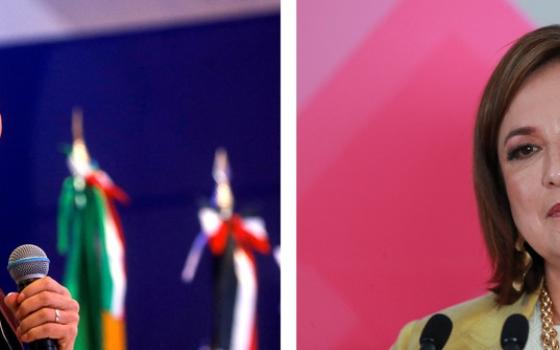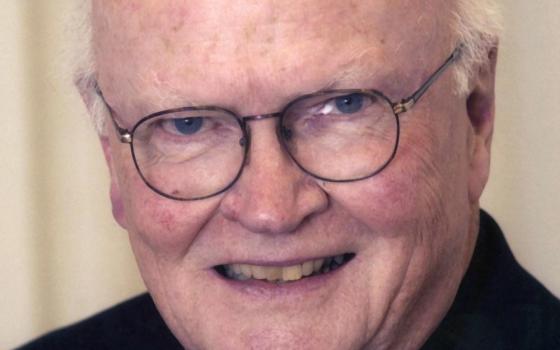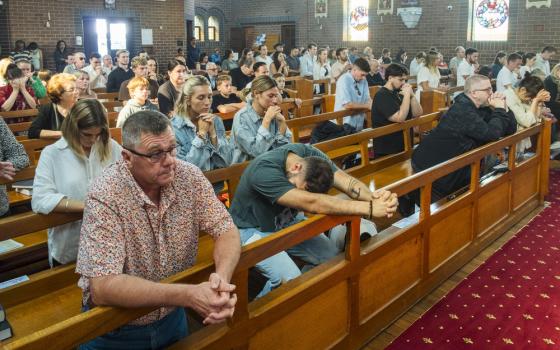With the election of Martin V as pope on Nov. 11, 1417, the feast of St. Martin, the Great Western Schism (1378-1417) finally came to an end.
The Schism began with the election of Urban VI, one of the most unstable popes in all of papal history and the last non-cardinal to be elected to the papacy. So intransigent and unreasonable was Urban VI that the French cardinals, who had seen the last French pope elected with Gregory XI (1371-78), elected an antipope, Clement VII.
As the darker side of the new pope's personality had disclosed itself, the French cardinals asked Urban to abdicate, but he refused. Five days later, they sent out a notice to the Christian world that the pope had been deposed as incompetent.
The French cardinals moved to an Italian city, Fondi, where they elected the cousin of the French king, Cardinal Robert of Geneva on Sept. 20. As soon as he was crowned Oct. 31, the Great Western Schism erupted.
It would not end until almost 40 years later, with the election of Martin V by the Council of Constance (1414-18) and the deposing beforehand of the then-three claimants to the papal throne: Gregory XII, who was in the Roman line and who was allowed to convene the Council of Constance after it had already begun; John XXIII, who was elected by the Council of Pisa in 1409; and Clement VIII, the last of the pretenders to the Avignon papacy.
Oddo Colonna was cardinal-deacon of San Giorgio in Vilabro when unanimously elected pope by the Council of Constance after an unusual three-day conclave at which 22 cardinals and 30 representatives of the five nations present at the council participated -- and voted. It was the first -- and last -- papal conclave since 1058 to include lay electors.
Since Colonna was only a deacon at the time of his election, he was immediately ordained a priest and consecrated as Bishop of Rome. He was crowned on Nov. 21 in the cathedral church in the city of Constance.
Just to show how chaotic the situation was during the Schism, the new pope had originally been loyal to Gregory XII, whom the Annuario Pontificio recognizes as the duly elected pope at the time, but broke with him in the summer of 1408 and was active in the preparations for the Council of Pisa the following year.
That council elected John XXIII, who, like Clement VIII, is regarded as an antipope. John's election did not prevent another John XXIII from assuming the same name in 1958.
Cardinal Colonna (the future Martin V) remained loyal to the antipope John XXIII until John suddenly fled Pisa in disguise when the Council of Constance asked for his resignation as well as that of the two other claimants to the papal throne.
Martin's election effectively ended the Schism, even though first Benedict XIII (the Avignon antipope) and then his successor, Clement VIII, held out until their supporters dwindled to insignificance.
But Gregory XII's abdication, and then John XXIII's acceptance, under duress, of his own deposition by the Council of Constance cleared the way for almost universal acknowledgment of Martin V as the only legitimate pope.
Clement VIII renounced his claim to the papacy and, along with the few cardinals still support-ing him, submitted to Martin V in 1429.
Concerned about the chaos that had developed in the Papal States during the Schism, Martin V resisted pressures to make his papal residence in Germany. He left Constance for Rome on May 16, 1418, but made intermediate stops in Mantua and Florence, the latter for more than a year.
He arrived in Rome on Sept. 28, 1420. He negotiated an agreement with the Queen of Naples to withdraw her troops from the city and his own papal troops defeated the dominant ruler of central Italy and later crushed a revolt in Bologna.
He was now free to reorganize the Papal States and recover the lost papal treasury, thereby enriching not only the Holy See but also his Colonna relatives.
Although his various diplomatic initiatives in Europe had mixed results, he displayed unusual sensitivity toward Jews, denouncing anti-Jewish preaching and forbidding the compulsory baptism of young Jewish children.
And though he had been unsympathetic with the Council of Constance's decree that councils be held at regular intervals, he did summon one to meet in Pavia in 1423. Because of the outbreak of plague, it was moved to Siena and then dissolved in 1424, ostensibly for poor attendance.
Martin V did announce that the next council would meet in Basel in 1431, but he died before it began.
© 2011 Richard P. McBrien. All rights reserved. Fr. McBrien is the Crowley-O'Brien Professor of Theology at the University of Notre Dame.




